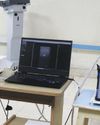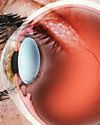
The COVID-19 pandemic has opened new avenues of how people do their day-to-day work and how children as young as three are undertaking online lessons. Though a handful of offices have opened, a majority of the workforce is somehow managing to work from home. And all this has led to increased consumption of the Internet. The high demand for the Internet has forced telecom operators to look out for an advanced form of technology to cater to the demands.
We are all aware of the harmful radiation being emitted from mobile phones and not only adults but even children are always hooked to mobile phones. The introduction of the fifth generation or 5G network has made many cautious about the harmful effects of mobile radiation. However, healthcare experts and the government have been able to allay some fears among the general public, as there is no concrete evidence to prove that mobile radiation can cause health hazards.
A few years back health specialists have raised concerns and believed that too much handling of mobile phones may lead to headaches, heart diseases, and sometimes fertility issues. With COVID-19 on the loose, things have changed for good. With little option in hand, the urban and rural areas have seen a surge in the demand for Internet connectivity.
Now, on one hand, we need good Internet service for online classes and webinars and online conferences happening in large numbers and on the other, we are concerned about the health hazards due to radiation being emitted from mobile phones and other gadgets.
This story is from the {{IssueName}} edition of {{MagazineName}}.
Start your 7-day Magzter GOLD free trial to access thousands of curated premium stories, and 9,000+ magazines and newspapers.
Already a subscriber ? Sign In
This story is from the {{IssueName}} edition of {{MagazineName}}.
Start your 7-day Magzter GOLD free trial to access thousands of curated premium stories, and 9,000+ magazines and newspapers.
Already a subscriber? Sign In

Early Diabetic Retinopathy Detection Remains a Challenge
The Vitreo Retinal Society of India (VRSI) and the Research Society for the Study of Diabetes in India (RSSDI) have formulated a first-of-its kind diabetic retinopathy (DR) screening guideline to help physicians and diabetologists in India educate their patients about DR.

Promega unveils GloMax Galaxy Bioluminescence Imager for illuminating protein dynamics in real time
US-based Promega Corporation, a life-sciences research partner dedicated to providing intuitive tools that empower scientists to innovate, has unveiled the new GloMax Galaxy Bioluminescence Imager.

Qiagen launches QIAcuityDx digital PCR system for clinical testing in oncology
Qiagen N.V. has announced the launch of the QIAcuityDx Digital PCR System, a pivotal addition to its digital PCR portfolio now expanding into clinical diagnostics.

Thermo Fisher introduces iCAP MX Series ICP-MS to simplify trace elemental analysis
Thermo Fisher Scientific Inc. has launched the Thermo Scientific iCAP MX Series ICP-MS to simplify trace element analysis with inductively coupled plasma mass spectrometry (ICP-MS).

Singleron, Bioscreen to enhance access to single cell multi-omics solutions for Indian researchers
Singleron Biotechnologies, a leading innovator in single cell multi-omics solutions, has announced a strategic partnership with Bioscreen, a renowned distributor of advanced life science products in India.

IIT Madras identifies enhanced drug delivery method for eye treatments
Researchers at the Indian Institute of Technology Madras (IIT-M) have demonstrated how drugs injected in the human eye can be better delivered to the target region through ‘convection caused by mild laser heating’.

IIT Madras develops indigenous POCUS scanner for sports injury diagnosis
A team of researchers at the Indian Institute of Technology Madras (IIT-M) has developed an indigenous portable Point-of-Care-Ultrasound (POCUS) Scanner for sports injury diagnosis and management.

Practo strengthens Board with appointment of TVG Krishnamurthy and Dr Alexander Kuruvilla
Practo has appointed two new directors to its board: TVG Krishnamurthy and Dr Alexander Kuruvilla.

Dr R N Gupta steps in as National President of Indian Pharmaceutical Association
Dr R N Gupta has been elected as the National President of the Indian Pharmaceutical Association (IPA), the oldest and largest association of pharmaceutical professionals in the country, for the term 2024 - 2026 (October 1, 2024 - September 30, 2026).

QR678 brings medtech leader Sridhar Ranganathan to advisory board
QR678, a pioneering company dedicated to revolutionising hair and skin science through groundbreaking research and innovative solutions, has announced the appointment of Sridhar Ranganathan to its Board of Advisors.